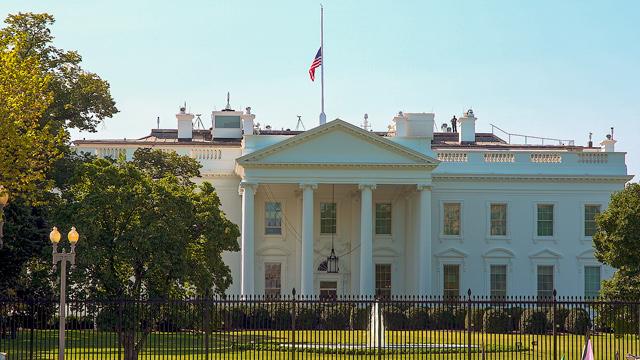- International News
- Thu-2020-10-08 | 08:01 pm

Over the last 25 years, in spite of all the societal and demographic changes the US has undergone, the fundamental partisan balance in the country has not changed too much, said research associate at the Pew Research Centre, Bradley Jones during a virtual briefing.
The briefing, which offered insight onto US demographics related to the presidential election, is part of the "Elections 2020: A Virtual Reporting Tour of the United States and the American Electoral Process”, held and organised by the Foreign Press Centres at the US Department of State – Bureau of Global Public Affairs.
The Pew Research Centre, "a non-profit ‘fact tank’ that informs the public about the issues, attitudes and trends shaping the world”, has been conducting telephone surveys for over 25 years, which has currently shifted onto the web, Jones said, noting that the telephone trends help researchers observe how things evolved over time.
The surveyor would ask the respondents if they identify with one of the two major parties in the US, the Republican or Democrat, and there is an increasing number of people who say they do not identify with either, so they are asked on if they feel closer to one party than the other, Jones said.
He noted that 90 per cent or more of the public tell the surveyors that they do feel closer to one party even if they do not identify with it.
"In fact, our most recent data on this from the telephone shows that more voters call themselves independents than identify with either one of the major parties. We have 34 per cent in our most recent data,” the briefer said, noting that follow-ups with voters who said they identify with one party showed that they act like those who identify with it.
"Among white voters, the distribution of partisanship actually has been very stable over the last 25 years. About half of White voters identify with or lean towards the Republican Party and about 40 per cent do the same towards the Democratic Party,” Jones said, showcasing a graph that presents the evolution of Whites’ identification with either party from 1994 until 2019.
The "non-whites” include black, Hispanic, Asian, other race and mixed race, according to the Pew Research Centres’ survey data report, based on US adult registered voters.
Black voters "overwhelmingly” associate with the Democratic Party, with only a small minority saying they feel closer to the Republican Party; as for Hispanics, around 60 per cent call themselves Democrats or lean towards the party, while 30 per cent lean towards the Republican, Jones said, noting that the information is not clear on Asian Americans, because the centre conducts the surveys only in English and Spanish.
Jones said that there is a gender gap in American politics, noting that "most of the public opinion data that we have even extending back into the 50s, 60s, 70s and 80s show that there is a gender gap between men and women in terms of their party affiliation”.
He added that women are more likely than men to identify with or lean towards the Democratic Party, whereas men show a slight preference to the Republican Party.
"Education is an important dividing line in American politics. We've seen over the past 25 years, a great change in terms of an increasingly educated electorate and educated voters have trended towards the Democratic Party.
In regard to college degrees and higher education, the Democrats have the advantage, while that was in reverse back in 1994 as Republicans had an advantage with college educated voters, Jones said, adding "if we broke that down further, we would see that those with the least amount of education, a high school education or less, have been trending towards the Republican Party, more than those with, with some college education.”
Another important factor that the briefer shed light on is religion, noting that the most solidly Republican religious group is seen in white Evangelicals, and white Catholics and Mormons also trend towards the Republican; whereas black Protestants, Hispanic Catholics, Jews and "increasingly the religiously unaffiliated”, those not affiliated with any religion or do not believe in God, are increasingly moving towards the Democratic Party, Jones said.
"Geography is a really important factor in the United States and the country has been continuing to urbanise and the rural places in the US have decreased in population pretty steadily over the last few decades,” the research associate said, noting that rural places have been trending towards the Republican Party, while urban places have trended towards the Democratic.
Jones concluded that over the past 25 years, "the role of partisanship has just steadily increased where now it is clearly the most important dividing line in American politics”, sorting Democrats as the party of the left and Republicans as the party of the right, which he said was not a clear distinction back in 1994.













